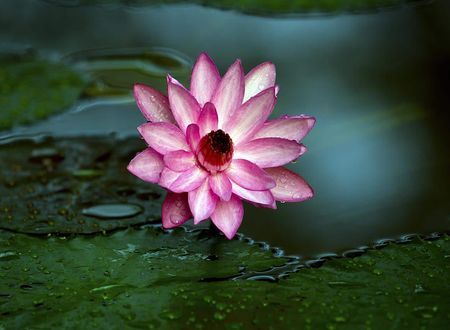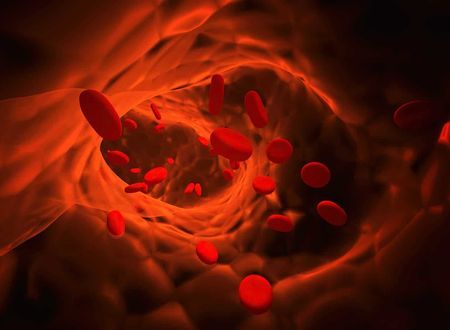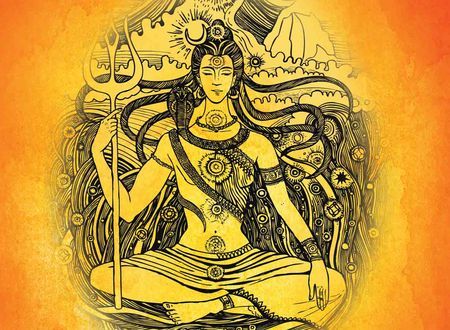Do dreams mean anything? We are a bi-mundial species — we live in two worlds, a real world and an imaginary world. It may seem that we spend all our time in the real world but this feeling is an illusion in itself. The time we spend in our thoughts of the past or the future is the time we spend in the imaginary world. How come? Because there is no direct handle on the reality of such thoughts; the past is dead and the future is mostly unknown. Vedic texts divide states of consciousness into three categories, namely, jagrata, wakeful, svapna, dreaming, and sushupta, sleeping. There are two more states, turiya and turiyatita, for the transcendental and beyond, but they are outside the scope of this post.
On the surface, the distinction seems clear: you are awake when in the wakeful state; while sleeping you are in the sleep state, and other times in your sleep you may be dreaming. Upon closer examination though, a deeper truth is revealed — these states, at times, are interchangeable and simultaneous. You could be in the sleep state even when wide awake. Most people are in fact living their lives like clockwork, they are sleeping. Thoughts and actions in the dream state can easily trigger physical responses in the real world. People can get wet, sweaty and scared in their dreams, for example.
Allow me to quote Chuang Tzu from a text also called Chuang Tzu, a classical Taoist treatise. He was a phenomenal Chinese thinker who graced our planet in the fourth-century B.C.E. Quoting him verbatim from a translated text:
“Those who dream of the banquet may weep the next morning, and those who dream of weeping may go out to hunt after dawn. When we dream, we do not know that we are dreaming. In our dreams, we may even interpret our dreams. Only after we are awake do we know that we have dreamed. But there comes a great awakening, and then we know that life is a great dream. But the stupid think they are awake all the time and believe they know it distinctly.
“Once I, Chuang Tzu, dreamed I was a butterfly and was happy as a butterfly. I was conscious that I was quite pleased with myself, but I did not know that I was Tzu. Suddenly I awoke, and there was I, visibly Tzu. I do not know whether it was Tzu dreaming that he was a butterfly or the butterfly dreaming that he was Tzu. Between Tzu and the butterfly there must be some distinction. This is called the transformation of things.”
So, what are dreams? Dreams represent a world no less real than our physical world, a world that is free of the calculations and interpretations of the conscious mind. It is a world of the subconscious and the unconscious. The primary difference between our real world and the dream world is consciousness; the real world is made up of collective consciousness, whereas the dream world is solely created by individual consciousness. In the real world, someone else’s actions or words can bring about changes in our world. For example, a terrorist attack, a war or domestic violence etc. This is what I mean by collective consciousness in the current context. But your dream world is entirely your own, it is never without you; you can never have a dream with you not in it. You experience and witness it in absolute terms.
Just like our real world is an amalgamation of our thoughts, emotions, actions, surroundings and so forth, our dream world has all these elements too. There is a degree of interchangeability between the real and dream worlds. Sometimes what you dream comes true and other times, what you see in the real world is played back to you in your dreams. In dreams, your ego is lying low, the conscious mind is not calculating, as a result, you live an un-lived life, you experience a free world, you transcend taboos, you are not afraid to be yourself. Dreams can heal you. They can also signify something very important. Read on.
When you get a similar type of dream repeatedly, it often means you are repressing something in real life. All feelings and emotions must either be channelized or expressed. Whatever you repress will bottle up in you. The more restless you are, the more disturbing the dreams. The greater the repression, the less the quality of your sleep. You repeatedly dream of what you deny. Let this sink in: you repeatedly dream of what you deny. If you have paranoia in real life and you are not working towards your own fulfillment, freedom and fearlessness, you will have more nightmares than pleasant dreams. Whatever you strongly desire or fear but are unable to express, acquire or experience in real life ultimately manifests in your dreams.
Just like you can create objects in the real world, you can create your dreams too. You can use that method to heal yourself and do much more. It’s on my mind to write on lucid dreaming both from a contemporary and yogic perspective. Cognizant dreaming can be healing, empowering and liberating. Even more powerful than self-hypnotism, it’s a phenomenal way of training and experiencing the subconscious mind. It’s not a promise, but hopefully, I shall find the time to write on it in the foreseeable future.
Do not suppress yourself. Express. Experience. Rather than dreaming about your life, go claim the life of your dreams. Live it. Sleeping is good, but living is better.
Peace.
Swami
A GOOD STORY
There were four members in a household. Everybody, Somebody, Anybody and Nobody. A bill was overdue. Everybody thought Somebody would do it. Anybody could have done it but Nobody did it.
Don't leave empty-handed, consider contributing.It's a good thing to do today.









Comments & Discussion
16 COMMENTS
Please login to read members' comments and participate in the discussion.